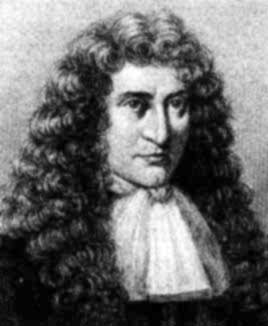

تاريخ الرياضيات

الاعداد و نظريتها

تاريخ التحليل

تار يخ الجبر

الهندسة و التبلوجي


الرياضيات في الحضارات المختلفة

العربية

اليونانية

البابلية

الصينية

المايا

المصرية

الهندية


الرياضيات المتقطعة

المنطق

اسس الرياضيات

فلسفة الرياضيات

مواضيع عامة في المنطق


الجبر

الجبر الخطي

الجبر المجرد

الجبر البولياني

مواضيع عامة في الجبر

الضبابية

نظرية المجموعات

نظرية الزمر

نظرية الحلقات والحقول

نظرية الاعداد

نظرية الفئات

حساب المتجهات

المتتاليات-المتسلسلات

المصفوفات و نظريتها

المثلثات


الهندسة

الهندسة المستوية

الهندسة غير المستوية

مواضيع عامة في الهندسة

التفاضل و التكامل


المعادلات التفاضلية و التكاملية

معادلات تفاضلية

معادلات تكاملية

مواضيع عامة في المعادلات


التحليل

التحليل العددي

التحليل العقدي

التحليل الدالي

مواضيع عامة في التحليل

التحليل الحقيقي

التبلوجيا

نظرية الالعاب

الاحتمالات و الاحصاء

نظرية التحكم

بحوث العمليات

نظرية الكم

الشفرات

الرياضيات التطبيقية

نظريات ومبرهنات


علماء الرياضيات

500AD

500-1499

1000to1499

1500to1599

1600to1649

1650to1699

1700to1749

1750to1779

1780to1799

1800to1819

1820to1829

1830to1839

1840to1849

1850to1859

1860to1864

1865to1869

1870to1874

1875to1879

1880to1884

1885to1889

1890to1894

1895to1899

1900to1904

1905to1909

1910to1914

1915to1919

1920to1924

1925to1929

1930to1939

1940to the present

علماء الرياضيات

الرياضيات في العلوم الاخرى

بحوث و اطاريح جامعية

هل تعلم

طرائق التدريس

الرياضيات العامة

نظرية البيان
Denis Papin
المؤلف:
C-A Klein
المصدر:
Denis Papin: illustre savant blaisois
الجزء والصفحة:
...
19-1-2016
1786
Born: 22 August 1647 in Blois, France
Died: 1712 in London, England

Denis Papin attended a Jesuit school in Blois then, in 1661, he began his studies at the University of Angers. He graduated with a medical degree in 1669.
Papin assisted Huygens with air pump experiments from 1671 to 1674, during which time he lived in Huygens's apartments in the Royal Library in Paris. Papin went to London in 1675 to work with Boyle. He remained in this post until 1679 when he became Hooke's assistant at the Royal Society. Papin was elected a Fellow of the Royal Society in 1680.
In 1681 Papin left for Italy where he was director of experiments at the Accademia publicca di scienze in Venice until 1684. There was an attempt to turn the Accademia in Venice into a Society modelled on the Royal Society in London and the Académie Royale in Paris but lack of financial support ended the attempt.
There were religious reasons why Papin could not return to France. He was a Calvinist, born into a Huguenot family, and after the Edict of Nantes which had granted religious liberty to the Huguenots was revoked by Louis XIV in 1685, he became an exile.
Papin returned to London in 1684 working again with the Royal Society until 1687. After this Papin left England and went to Hesse-Kassel where he was appointed professor of mathematics at the University of Marburg. He held this post until 1696 when he worked for the Landgrave of Hesse-Kassel until 1707. This time in Hesse-Kassel was not a successful one for Papin who found himself in disagreement with his colleagues.
Papin is best known for his work as an inventor, particularly his work on the steam engine. In 1679 he invented the pressure cooker and, in 1690 he published his first work on the steam engine in De novis quibusdam machinis. The purpose of the steam engine was to raise water to a canal between Kassel and Karlshaven. He also used a steam engine to pump water to a tank on the roof of the palace to supply water for the fountains in the grounds. In 1705, when Leibniz sent Papin a sketch of a steam engine, Papin began working on that topic again and wrote The New Art of Pumping Water by using Steam (1707). He designed a safety valve to prevent the pressure of steam building up to dangerous levels.
Other inventions which Papin worked on were the construction of a submarine, an air gun and a grenade launcher. He tried to build up a glass industry in Hesse-Kassel and also experimented with preserving food both with chemicals and using a vacuum.
In 1707 Papin built the first paddle boat and that same year he returned to London where he lived in obscurity and poverty until his death. The date given for his death is only a guess since no records seem to exist of his last years in London. His last known letter is dated 23 January 1712.
- P P MacLaughlin, Biography in Dictionary of Scientific Biography (New York 1970-1990).
http://www.encyclopedia.com/doc/1G2-2830903282.html - Biography in Encyclopaedia Britannica.
http://www.britannica.com/eb/article-9058341/Denis-Papin
Books:
- C-A Klein, Denis Papin: illustre savant blaisois (Chambray, 1987).
- C Cabanes, Denys Papin, inventeur et philosophe cosmopolite (Paris, 1935).
- J Chavigny, Grandeur et misère d'un inventeur, Denis Papin (Blois, 1948).
- L de Saussaye, La vie et les ouvrages de Denis Papin (Lyon, 1869).
Articles:
- H W Dickinson, Tercentenary of Denis Papin, Nature 160 (1947), 422-423.
- A Guillermo Ranea, Leibniz Briefwechsel mit Denis Papin, Prima philosophia 4 (1991), 277-290.
- C S Maffioli, Guglielmini vs Papin (1691-1697), Science in Bologna at the end of the XVIIth century through a debate on hydraulics, Janus 71 (1-4) (1984), 63-105.
- A G Ranea, The a priori method and the actio concept revised : Dynamics and metaphysics in an unpublished controversy between Leibniz and Denis Papin, Studia Leibnitiana 21 (1) (1989), 42-68.
- H W Robinson, Denis Papin (1647-1712), Notes and Records of the Royal Society 5 (1947), 48-50.
 الاكثر قراءة في 1600to1649
الاكثر قراءة في 1600to1649
 اخر الاخبار
اخر الاخبار
اخبار العتبة العباسية المقدسة

الآخبار الصحية















 قسم الشؤون الفكرية يصدر كتاباً يوثق تاريخ السدانة في العتبة العباسية المقدسة
قسم الشؤون الفكرية يصدر كتاباً يوثق تاريخ السدانة في العتبة العباسية المقدسة "المهمة".. إصدار قصصي يوثّق القصص الفائزة في مسابقة فتوى الدفاع المقدسة للقصة القصيرة
"المهمة".. إصدار قصصي يوثّق القصص الفائزة في مسابقة فتوى الدفاع المقدسة للقصة القصيرة (نوافذ).. إصدار أدبي يوثق القصص الفائزة في مسابقة الإمام العسكري (عليه السلام)
(نوافذ).. إصدار أدبي يوثق القصص الفائزة في مسابقة الإمام العسكري (عليه السلام)


















